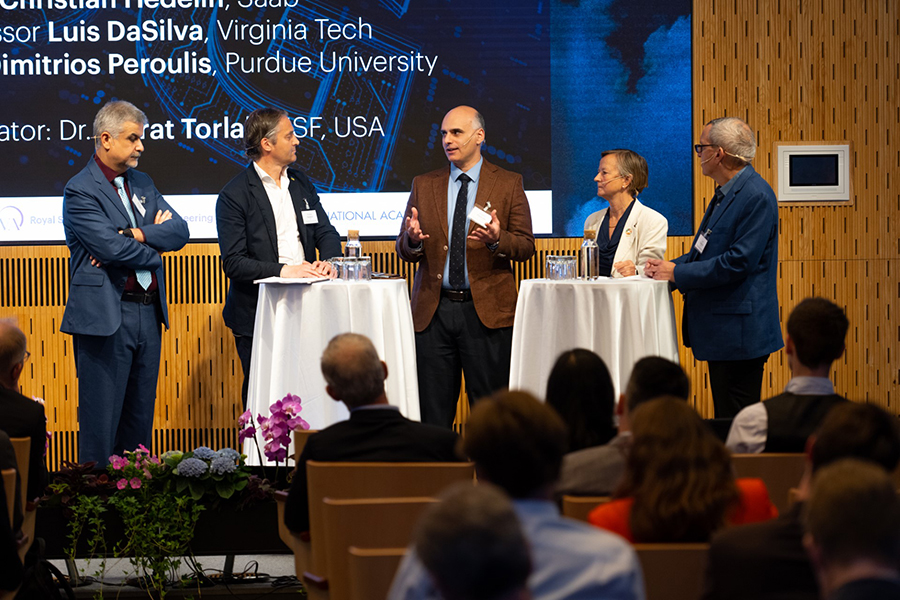Purdue Prof. Dimitrios Peroulis participates in international seminar to boost Sweden-USA collaboration on 6G technology

Dimitrios Peroulis, Reilly Professor in Purdue University’s Elmore Family School of Electrical and Computer Engineering and Senior Vice President for Purdue University Online, recently participated in a seminar co-hosted by the Royal Swedish Academy of Engineering Sciences (IVA) and US National Academy of Engineering (NAE) to strengthen the cooperation between Sweden and the USA regarding 6G.
6G is the next generation of wireless technology that promises to bring faster speed, lower latency, and greater capacity. It will enable new use cases and provide opportunities for research and innovation. The seminar, titled 6G and Future Wireless Systems, discussed the importance of international collaborations in the development and implementation of the new technology.
Peroulis participated in a panel discussion titled “Potential areas of collaboration between US and Swedish innovation systems.” He talked about ways Purdue has been successful in bringing industry into the university environment and launching startup companies using research developed at Purdue. Peroulis pointed to Discovery Park, where companies can acquire space and work with university researchers. He also explained the “lab to life” concept, which is being developed at the Purdue Airport through a collaboration with industry partners Ericsson and Saab. The partnership involves the creation of a unique 5G network that will serve as a “lab to life” proving ground for academics, researchers and business to develop commercial solutions that can be replicated to improve operations and security at airports of all sizes.
